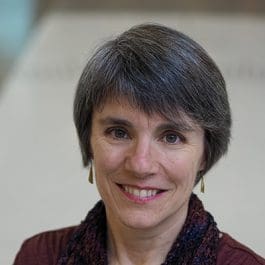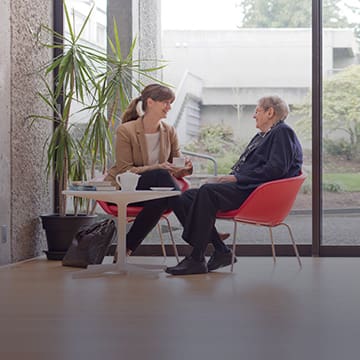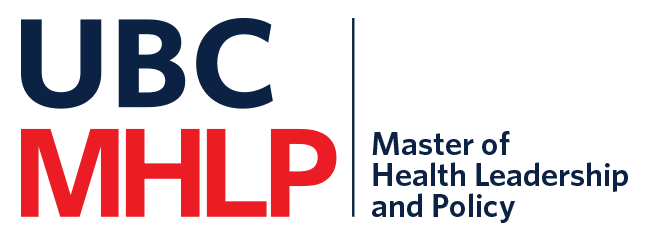Spotlight: Program Series with Alison Phinney – Seniors Care

By Alison Phinney, Professor and associate director of graduate programs at UBC School of Nursing
The fastest-growing segment of our population are those aged 85 and older. While most elderly people would like to continue living at home, health issues and the need for support with daily living can make that difficult – and one-third of Canadian seniors over 85 are currently living in long-term care facilities.
Unfortunately, the systems we have in place to support seniors were not designed to meet the existing number of people who need them. These systems are fragmented and often insufficient to meet complex health care, social and cultural challenges.
Although it’s easy to focus on the challenges that arise from an acute shortage of beds and the workers required to provide care to seniors within long-term facilities, there are other issues to consider. There’s an urgent need for new models of care and more integrated support for seniors who are still living in their homes. This encompasses everything from medical assistance to helping seniors manage daily activities. There’s also a need for greater co-ordination of the services available in our communities – such as neighbourhood houses, adult day programs or drop-in centres – including the transportation required to get seniors safely to and from these activities.
It’s a given that we need more beds and more support for essential programs. But we also need to rethink the system as a whole to ensure our models of care are effective, integrated and co-ordinated. Achieving this latter goal will require professionals grounded in clinical practice who also have the business knowledge and leadership skills to think critically about the current challenges and envision new possibilities.
Since January 2016, UBC’s Master of Health Leadership and Policy (MHLP) in Seniors Care has welcomed students who want to develop new and innovative models of seniors care, and to use their leadership roles to work for change in support of older people. Over the 12-month program, our students take specialized classes in seniors care as well as classes offered through UBC Sauder’s Robert H. Lee Graduate School on leadership, project management and business skills development.
That integration of clinical and business viewpoints is essential for bridging the gap that often exists between those who speak the language of business and those with clinical expertise. We see that gap narrowing for our students as early as a few weeks into the first semester. Student discussions of case studies often begin from their perspective as individual practitioners and then expand into discussions of the policy changes, organizational management approaches or change management strategies that would be needed to engage people within a specific setting and make a difference in care.
Our students come to us from a range of professional backgrounds, and while many are nurses, there are also doctors, dieticians, physiotherapists and other professionals. When they leave the program, our graduates enter the workforce with the business and clinical knowledge they need to take on leadership positions and move the agenda forward to better support seniors.
Learn more about how the MHLP can help you lead change in your industry, giving you the technical knowledge, foundational business skills and leadership confidence to excel in your career. The UBC MHLP Professional Leadership Master Degree offers sector-specific programs, including clinical education and seniors care.
Seniors Care
Move your career forward as a health-care specialist dedicated to improving patient outcomes and fostering the well-being of seniors.
Read MoreFeatured Faculty and Staff

DR. ALISON PHINNEY
Application Deadlines
The online application portal for the January 2025 has closed.
Get ready to apply!
Admissions for the 2026 intake will open on January 1, 2025.
How to ApplyFeatured Faculty and Staff

DR. ALISON PHINNEY
Seniors Care
Move your career forward as a health-care specialist dedicated to improving patient outcomes and fostering the well-being of seniors.
Read More
